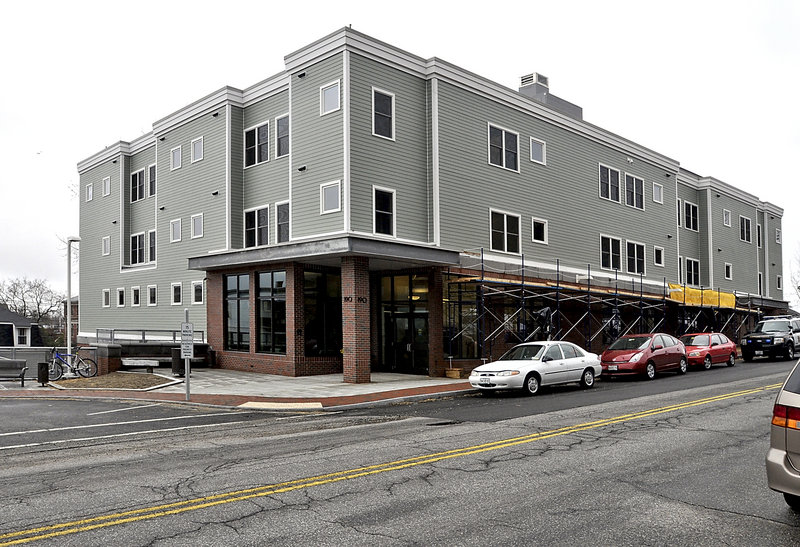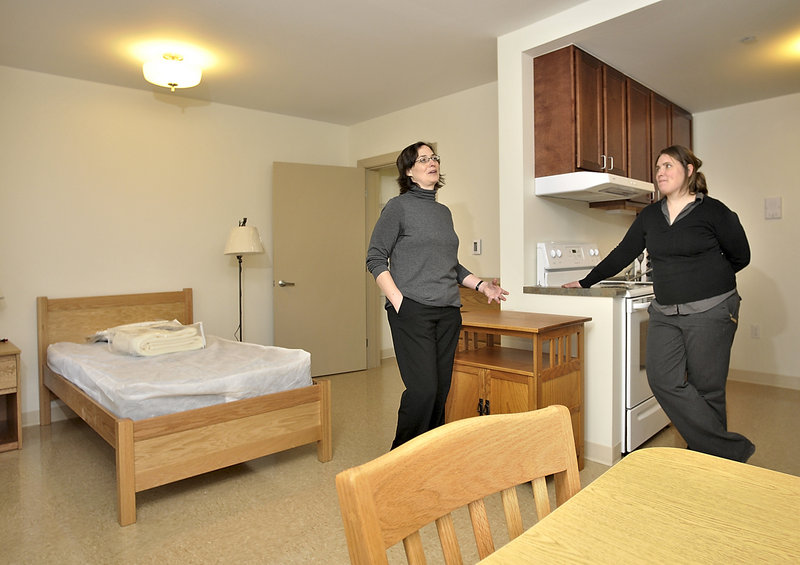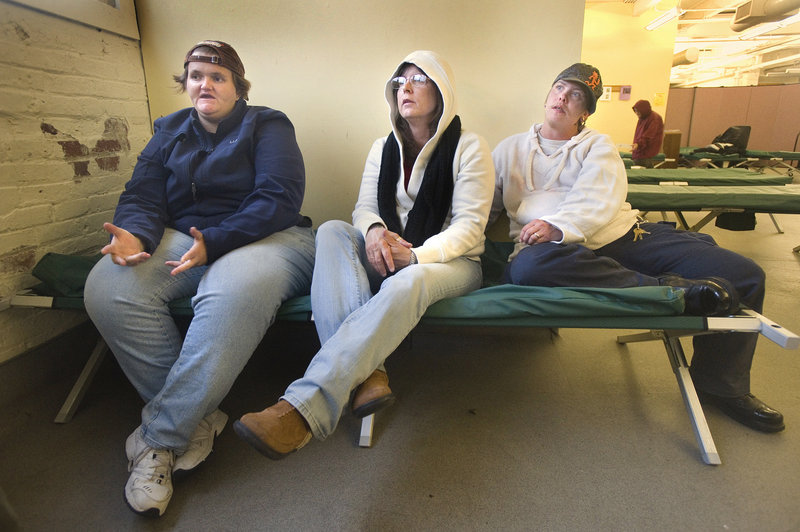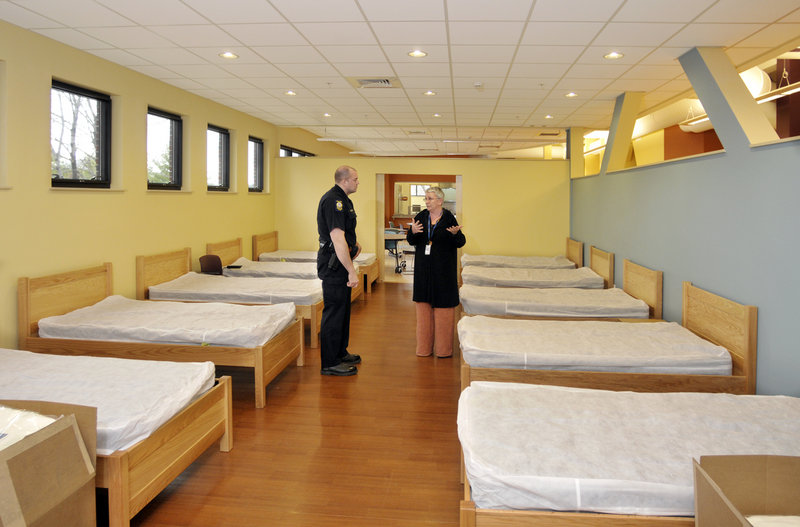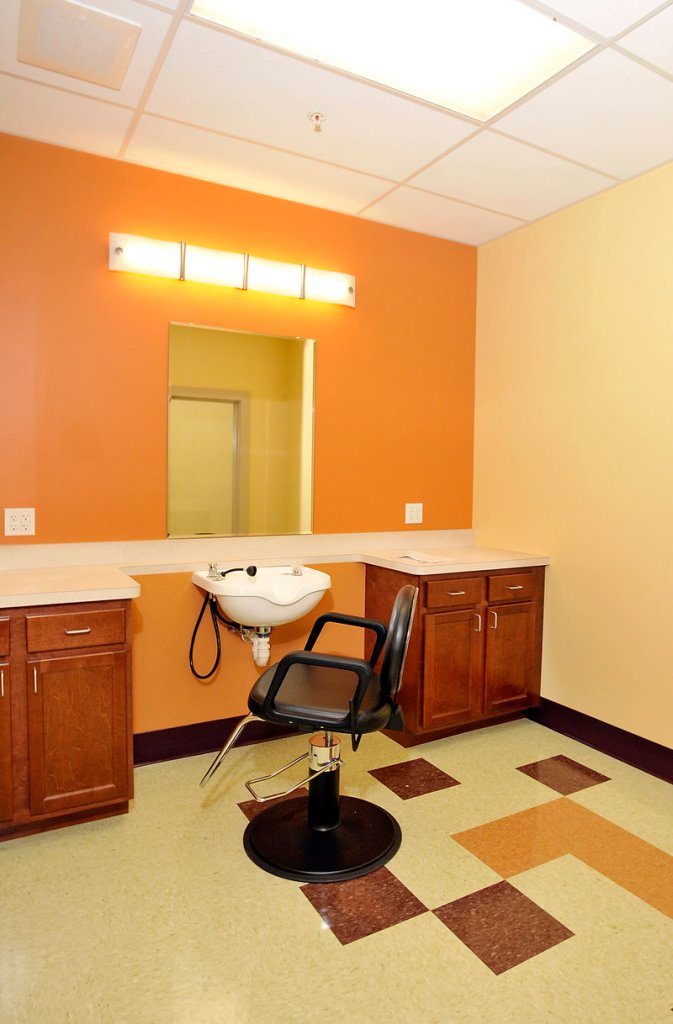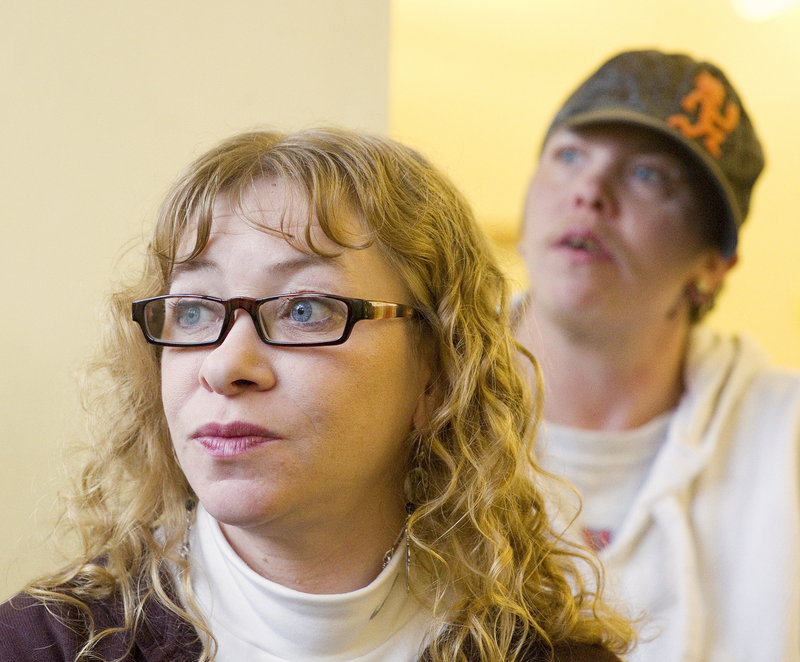PORTLAND — For the past three years, the closest thing to home for Shellie Duncan has been a folding cot in a corner of the community room at Preble Street, a social service agency in downtown Portland.
And that was a step up from her previous “home,” a floor mat at the city’s Oxford Street shelter.
Now, she’s about to get a new home – a real one.
“It’s beautiful,” Duncan, 29, said after a visit to the fully furnished apartment she will move into this week. “I didn’t want to leave.”
Florence House, a $7.9 million haven for homeless women that has been five years in the making, will open to its first residents Tuesday.
the end of this week, 40 women will move into the home’s apartments or its semi-private bedrooms, called safe-haven spaces. Others will come to stay in the home’s emergency shelter, a separate room with real beds and real mattresses.
It will be a life-changing move across town, to Valley Street, and even the short visit last week was emotional for many women.
“When I found out I would have my own place, I cried. It’s crazy,” said Brenda Biggs, who will stay in a safe-haven space while she’s on a waiting list for public housing. “I’ve been pushing around a cart. I feel like a bag lady. I feel like I hit rock bottom.”
Now, Biggs said, “you can feel good about yourself.”
Florence House was created by Preble Street, the nonprofit agency that now hosts the women’s shelter, and Avesta Housing, a Portland-based nonprofit housing developer.
Named after a longtime Preble Street volunteer, Florence House was built with a combination of state and federal financing and private donations. It will be run by Preble Street and a 24-hour staff.
And it could hardly be more different from the current shelter. There, women line up each evening until the doors open and they can claim their cots. They have to move out each morning so the cots can be put away again.
There were more than 300 women who stayed in the Preble Street shelter during the past year, with an average occupancy of 49 each night.
Preble Street is an appreciated refuge, and the women say it’s much better than what they had when they shared the Oxford Street shelter with men. But it’s not comfortable or peaceful, Duncan said. “I can’t get any sleep here,” she said.
Florence House will give the most vulnerable members of the city’s homeless community a sense of security that they can’t afford to have on the street, said Amanda Wells, director of the Preble Street shelter and the new coordinator of Florence House.
“I don’t think the women ever could feel truly safe” at Preble Street, Wells said. “There’s this hyper-vigilance that women have over there.”
The new space is bright, spacious and homey, with colorful walls, comfortable furniture and an outdoor patio. The basement even has a hair salon for visiting hairdressers to make house calls.
The first floor has a kitchen and a dining room where women will be able to eat three meals day. It also holds the emergency shelter and the safe-haven spaces, which can be permanent housing for women who aren’t ready for apartments.
“One woman stood right here and said, ‘This is too good for me,’” said Debora Keller, Avesta’s director of development, as she stood in one of the rooms. “Suddenly, they have homes where they can be 24 hours a day.”
The top two floors have 25 efficiency apartments, each furnished with everything from pots and pans to donated L.L. Bean furniture.
All of the women who will move into apartments have been homeless for long periods for a variety of reasons, including disabilities and illness, isolation from their families or incomes that simply can’t support homes of their own.
Duncan and other apartment tenants signed leases and will pay as much as 30 percent of whatever income they have. The rest of the rent will be covered by government housing vouchers.
Women who stay in the shelter or safe-haven beds will be given free room and board, as they are now at Preble Street.
Florence House is an example of the “home-first” approach to chronic homelessness. Once people have a home, advocates say, they’re far more likely to get medical treatment, counseling or employment, and overcome whatever problems put them on the street.
Officials at Preble Street and Avesta based the new home on Logan Place, an apartment complex on Frederic Street that houses mostly men who were chronically homeless.
“When that opened (in 2005), we saw the effect it had,” said Dana Totman, president of Avesta. “The people were improving their lives.”
According to Totman and Mark Swann, director of Preble Street, the long-term vision behind Florence House is to reverse a steady rise in the number of homeless women in Portland. The number of women needing emergency shelter in Portland has nearly doubled in the past five years, according to city records.
While there will always be a need for emergency shelter, Totman said, “maybe we could eventually have homelessness almost go away.”
Sitting on a folding cot in the Preble Street shelter last week, Shellie Duncan and several friends looked forward to this week’s big move.
They like the special features at Florence House, including solar panels to heat the water and geothermal wells to heat the building. But the women were mostly excited about more important details, like having a place to leave their belongings and a bed they don’t have to get out of at 6:45 every morning.
For Kaylah Stowell, who will move into an apartment, it’s a bathroom without a waiting line and people continuously knocking on the door.
“I’m looking forward to no wake-up call” said Brenda Biggs.
“I’m looking forward to a half-hour shower,” said Dawn Wade. “I can’t wait to cook.”
Wade already has a job, in a store across St. John Street from her new apartment at Florence House. She’s sure that having a real home will change a lot of lives.
“It’s an opportunity for all of us to grow,” Wade said.
Staff Writer John Richardson can be contacted at 791-6324 or at:
jrichardson@pressherald.com
Send questions/comments to the editors.

